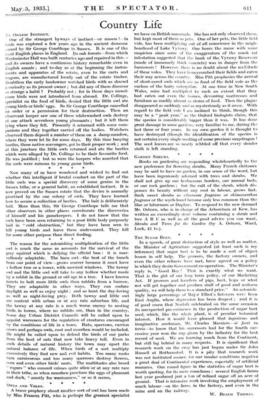* * * * THE SUGAR BEET.
In a speech, of great distinction of style as well as matter, the Minister of Agriculture suggested (at least such is my inference) that sugar beet is to be made a sort of object lesson in self help. The growers, the factory owners, and even the other refiners have met, have agreed on a policy in which they desire Government co-operation. The Minister's reply is, " Good Boy ! That is exactly what we want. That is the gist of our long term policy, of our Marketing Act. If growers and handlers of pigs, beet, hops or what not will get together and produce stuff of good and uniform quality, we will help them to a standard price." An astonish- ingly large percentage of Major Elliot's listeners werc from East Anglia, where depression has been deepest ; and it is of good omen that Norfolk celebrated on the same occasion its unexpected pre-eminence in the production of sugar beet seed, which, like the whole plant, is of peculiar botanical interest. How it would have pleased that ingenious and imaginative seedsman, Mr. Charles Marsters—si foret in terris—to know that his successors had for the fourth suc- cessive year won the cup given by the industry for the best record of seed. We arc learning much from the Continent, but still lag behind in many respects. It is significant that research work on the crop has just begun under Sir John Russell at Rothamsted. It is a pity that research work was not instituted sooner, for our insular conditions negative a great deal of Continental experience, especially of artificial manures. One round figure in the statistics of sugar beet is worth quoting, for its mere roundness : several English farms last year produced just a ton of refined sugar off an acre of ground. That is intensive work involving the employment of much labour—on the farm, in the factory, and even in the mine and on the railway.
W. BEACH THOMAS.










































 Previous page
Previous page